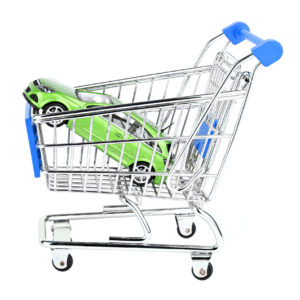They Called it Facebook for a Reason

A phone rings in the middle of the night, startling a grumpy middle-aged college dean back into consciousness. The computer servers at Harvard are crashing.
A sophomore student named Mark Zuckerberg has hacked together a little program called Facemash that allows students campus-wide to vote on which undergraduate's pictures are hotter. Harvard's limited computing infrastructure can't handle the load. That's how the scene goes in the movie, and it's not too far removed from the truth. Facemash got shut down in a matter of days, but Zuckerberg went on to create TheFacebook, which soon became just Facebook; and the rest is history.
Facebook wasn't the first social network, but it soon became the ultimate social network.
At the most basic level, Zuckerberg simply took the actual Face Books from Harvard and translated them from paper and ink to pixels. Harvard printed directories of students, including pictures and bios, so students from far-flung locations and backgrounds could identify each other and, more importantly, identify with each other.
They printed the books to help lonely, socially awkward students make friends faster. Facebook began as a program to share pictures and help people make friends. Once interactivity got added to the mix, the world was never the same. You will notice, however, that the computers at Harvard didn't come crashing down because people were arguing over political conspiracies to help/hurt the president by exaggerating/downplaying the effect of a worldwide pandemic/nasty little flu bug. The servers didn't fail because students were sharing memes or pictures of what they had for dinner.
They certainly didn't grind to a halt because some enterprising young students had a brand spanking new 2020 Nissan Rogues, for the incredibly low price of $349 a month with easy down payments and financing for everyone regardless of their credit history. The servers crashed because the students were sharing and interacting with pictures.
Facebook became a cultural phenomenon because people engaged with each other through pictures.
I now spend most of my waking hours helping salespeople sell more cars and make more money using social selling tools like Facebook, and the hardest part of that job is convincing them that they don't have to try so hard.
Mike Correra from DealerBuilt is an automotive social media pioneer. He was selling cars on LinkedIn and Facebook when most salespeople were still scoffing at the idea. Mike says the true key to success for salespeople on social media is to simply be more sociable.
If you're using social media primarily to sell to strangers, you need to grab a dictionary and look up the word social.
Facebook, and the entire concept of social media is about making friends, and engaging with friends. In short, it's about being friendly. Treating your friends' timelines like billboard space for cars you're trying to sell isn't friendly. Of course, you have to try to sell cars; no one's saying you shouldn't, but if that's the only thing you're doing on social media, you're doing it wrong. Your friends will unfriend you, they'll ignore what you post, and eventually, Facebook's algorithms will get the hint and stop showing your cheesy ads to your friends altogether.
So let's do this, for the next seven days, instead of trying to get as many cars as we can on Facebook, let's try to get as many faces as we can on Facebook. That's why they called it Facebook after all. Get your smiling face on there. Get your family and friends on Facebook. Get your happy customers on Facebook.
The old rule of thumb is every time you introduce a customer to another human being in the service department, you double the odds of that customer turning into a repeat customer.
Guess what. You can introduce people to your service department (and the parts department, and the title office) to your customers on Facebook every day. Find a local business person or community volunteer that's doing something interesting in the community and put their face on your Facebook profile. Help support the people who support you.
Dave Clayton at Tidelands Ford on Pawleys Island, SC sells 40 to 50 cars a month by making friends for life with customers and engaging with everyone on a personal level... online and in real life. He routinely finds people and events worth celebrating in his local community and uses his social media presence to lift them up and honor them; from the local ice cream shop to local artisans. His Facebook wall is a steady stream of happy faces.
See how many faces you can post on Facebook this week. Make sure you tag them so their friends can see the great things going on in their lives. And make sure that every human being you know, on Facebook and in real life, knows what you do for a living so that when they are in the market for a new or used car, they know they've got a friend in the car business.
Everyone's a buyer. Everyone.

Terry Lancaster
DMM Expert
Terry has authored three #1 best-selling books, spoken to audiences from coast to coast at TedX, The National Association of Broadcasters, and the National Automobile Dealers Association and sold ads to dealerships from Moose Jaw to Miami.
Get Curated Insights
Content worth the click
Related Articles












